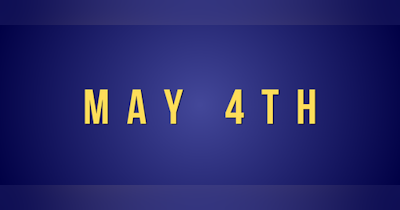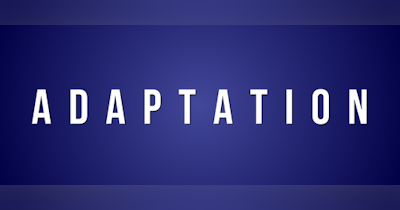.:: By John B Grimes
MY MENINGITIS STORY
As a 19-year-old sophomore at Texas Tech University, I was a typical student and like most teenagers, felt like I was 10 feet tall and bulletproof. I was an active member of the Delta Tau Delta fraternity. Everything seemed to be following an ordered path. And then, on February 13th, I woke up in the hospital.
Miraculously, eight days prior, my fraternity brother had found me unconscious on my bedroom floor. Now, I doubt I’m the only guy with a story about being found on the ground by a fraternity brother during his college days. Unfortunately, rather than being the result of a memorable college party (or more likely, a college party that can’t be remembered), my experience was thanks to a nasty bout with bacterial meningitis.
At the hospital, my parents held a tenuous weeklong vigil at my bedside, anxious for a sign that I would emerge from the coma. The stone-faced doctor on my case informed them I might not, while nonchalantly inquiring about my organ donor status. Despite this sobering prognosis from the soul-sucking Dr. Donald Downer (as my family began to refer to him), my parents refused to give up. After three days of no change in my status, they were determined to dispel the stagnation and sense of discouragement that threatened to settle in. So one morning, my dad held my hand, leaned in, and said, “John, if you can hear me, squeeze my hand three times.” I did. My parents fired the doctor and got a new one who was pro-recovery.
My parents’ faith proved well-founded. Not only did their positivity and support set me on the path to recuperating; it also inspired the mantra that would guide me into my new life. If you see a chance to move forward, grab it. Don’t waste time on negativity. Don’t wait.
Pre-dismissal from my case, Dr. Downer had also warned that if I did pull through, much of who I had been would not likely ever return, physically or mentally. I might still be here but I won’t be me. Yet, when I did come out of the coma, my brain remarkably was okay. Most of my body was also willing to respond if I was willing to do the work. But there were some significant disconnects.
As I swim back to an uneasy consciousness, the first thing I see is darkness. I’m disoriented by the darkness. I can hear—beeping machines, a constant stream of doctors, nurses, and therapists coming and going—but I cannot see. There’s a tube in my nose. I’ve lost control of my muscles. Speaking is out of the question. I can’t even smile—not that I have cause to smile; I’m exhausted, irritated, and confused. I have no idea what’s going on, why I’m here, how long I’ve been here, or how much longer I might continue to be.
Eventually the darkness dissipates somewhat. My so-called vision is almost more disorienting than the total blackness, but it does offer one piece of comfort. What I can see is my dad, seated by my hospital bed. I know without doubt he’s there with me, even if he doesn’t quite look like himself. He looks miles away despite being right in front of me.
I later learn I’m sightless in my right eye and the vision in my left eye is 20/300. For reference, 20/20 is perfect vision. 20/80 is poor vision. 20/300 is like looking through binoculars backwards. Essentially, everything looked far away … except my problem. That was very close.
Surviving meningitis turned out to be the easy part—so easy that I'd done it in my sleep. The seemingly impossible part was living after surviving meningitis. At 20 years old, I thought my sight would come back. It did not. Then it hit me: what’s the sense in waiting around for improvement that may never come? I must face the world as I am, not as I was. From that point onward, I did not wait for things to get better; I adapted. Adapting is the foundation of progress. Don’t wait.
The first step to adapting is learning or, in my case, relearning. I had to relearn all kinds of fun stuff, like how to swallow—which, by the way, requires you to drink Jell-O. Seems impossible… but unfortunately, it’s not! I found I preferred the red Jell-O. It tastes better and makes the nurses nervous.
Next up was walking. With the help of a dedicated physical therapist, I could soon walk indoors. That done, I felt pretty good. Check walking off the list! Then the therapists suggested I walk in grass. I couldn’t help but wonder why. I’m here to rehabilitate, not walk in the park! As soon as I took two steps outside, my face was instantly in the grass. In an instant, I’d gone from being a confident young man facing adversity to someone who can’t walk on a lawn? My dreams of being a star athlete, or even living a normal life, were slipping through my fingers. Two lessons quickly learned: (1) life is not a walk in the park, and (2) I literally cannot walk in a park.
Acknowledging my limitations was tough but necessary. True, I’d never drive a race car or be a surgeon. But being honest with myself about what I was unable to do led me in the direction of discovering what I could do. Only then was I able to hone the abilities I did have. Speaking opportunistically, if I’m coming out of a coma (kind of) blind, is there a better time than now? Get after it. Don’t wait.
Once I mastered the ability to eat with minimal risk of choking and became fully mobile again, it was time to go back to school. What’s the first class a newly blind guy should take when returning to school? The answer apparently was English literature, perhaps not the most well-thought-out selection. How was I supposed to read? At the time, books on tape were new. Paradise Lost was (mercifully) not available in Braille. Even if it had been, I didn’t know Braille anyway. I obviously dropped the class. At the time this seemed like an abysmal failure, but in time I realized that it was almost the exercise I needed to wrangle delusion into something profitable. Better to start with the delusion and hammer it into reality than to stand indefinitely in the foyer of hopelessness.
Missteps aside, my return to school went pretty well. I was able to participate in typical rites of passage and social gatherings despite an unusual plus-one. When you’re going to college parties, meeting new people, and drinking beer, your collegiate catheter is an awkward social companion. I turned 21 in my junior year and celebrated with partying on Sixth Street in Austin.
If you don’t want to use a catheter to urinate, the only way to drink beer on your first legal drinking day is to hold it. I don’t mean holding it for a while; I mean increasing the size of your bladder until it feels like you’re about to give birth. We’re talking I don’t just have to use the restroom. I mean I am in pain and coming up with baby names. What I learned was that if I wanted to have anything that resembled a normal life, I had to be willing to live in the reality of my situation. Preparedness and discipline became everything. Don’t wait… especially if you’ve gotta go!
After I graduated from college, I joined my dad in the insurance and financial services industry by taking a job with his colleague. Although I was among the best salespeople at the firm, I needed help with the paperwork. Being kind of blind and doing paperwork don’t go well together. With exceptional computer skills, I needed a special setup to succeed. To those with normal eyesight, my computer screen looked like a Monet painting focused on a single pixel, but it was my path to success. It allowed me not only to function but to be better with technology than most.
Regardless, computers could do nothing to help with the 50% of transactions that were still being done in person. I was supposed to be an expert on protecting the customer’s family and financial future. To do that, I needed to instill confidence, which can be difficult without typical conversation cues that the sighted can take for granted. For instance, it’s one thing for people not to know what you’re pointing at; it’s especially weird when you don’t know what you’re pointing at!
My disabilities, though mostly invisible to others, consumed me and impeded my ability to perform to my potential. Eventually it dawned on me that a world that can’t really see my disabilities is not going to wait for me to catch up. That responsibility belonged to me—I would never truly succeed until my desire to do so was greater than my disabilities. Now is always the time to take the next step. Don’t wait.
Sometimes the only way to win is to change the game, and that includes making up your own rules. It was now time to capitalize on my disabilities. Often, what looks like your greatest challenge is exactly what makes you great.
While learning to adapt my approach and revise goals to fulfill aspirations on the work front, I found myself powerless with respect to my deepest relational aspirations. Back when I was coming to terms with my physical limitations, I’d accepted that my meningitis-induced neurological damage meant that being a father was a desire and a dream, but not likely a reality. Well, it could be a reality, but one more likely delivered in a petri dish rather than the old-fashioned way. However, that was before Erin.
Medical science often lacks the ability to understand a man’s heart. By her presence, her laugh, and some things that can only be described as the will of a higher power, Erin not only changed the destiny of my heart but also of my life. With her, fatherhood could be in my future. And though science may hold many wonderful discoveries in a laboratory, our destiny unfolded the old-fashioned way. Within 18 months, Erin and I were stunned but overjoyed at the news confirmed by her obstetrician.
Just weeks later, the handheld ultrasound device did not detect a heartbeat. The doctor said this is common. We changed rooms where I encountered a large screen on the wall in front of me—a sonogram I could not see. Erin began to cry. I imagined the happy tears on my wife’s face as she saw the tiny being that fulfilled her dream of being a mother. I worried about how good of a dad I would be. I could not see what the others saw, could not tell the tears of joy from the tears of pain.
As it turns out, our dreams of parenthood would be a longer journey. This same scenario repeated itself exactly one year later with a second miscarriage before success eventually arrived in the form of our newborn child. It’s easy to throw around the word “miracle,” especially when the journey was as emotional as this one. But, there she was, somehow simultaneously three weeks early, fashionably late, and right on time. Perfect in every way. We would quickly add two more equally perfect daughters and complete our new family. The waiting for life to happen was over.
Destiny is debatable. The filter through which you view your circumstances is most certainly up to you. Whether you wake up in your own bed tomorrow, in a luxury suite at the Ritz-Carlton, or in a hospital, don’t wait to start building your life into the one you want. Waiting is like being at the DMV: your future seems to be in the hands of the apathetic (doctors with poor prognoses, bosses or employees who don’t value you, and your own nagging self-doubt). Don’t wait. Just do the next right thing. Even if you end up taking two steps forward and one step back, that’s still progress. In Texas, we even call it dancing.
This summary serves as the condensed essence and glimpse into my story, exploring weighty subjects while delivering a resonant message. Unveiling a mere fraction of the depth within the full 12-chapter narrative, this synopsis is the key to a realm where serious contemplation dances hand in hand with levity. As we eagerly court publishers, envision the imminent arrival of a complete masterpiece that will grace the coveted shelf space in a bookstore near you.
LATEST |
|
POSTS |
EPISODES |












